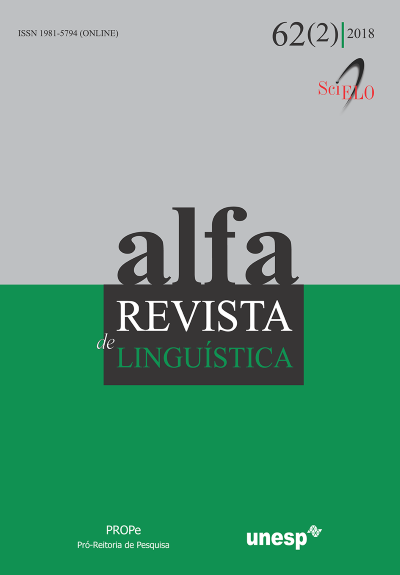Text production in higher education: rediscussing teaching-learning perspectives and procedures
DOI:
https://doi.org/10.1590/1981-5794-1807-4Keywords:
Text production, Higher education, ZDP, Scaffolding, Mastery learning, Recursive feedback,Abstract
This study aims to present and discuss the results of an interpretive qualitative study of the teaching-learning procedures used in a discipline exclusively focused on reading and production of academic texts under the Programa de Formação Interdisciplinar Superior (Profis) of State University of Campinas (Unicamp), from 2013 to 2016. As its theoretical basis, this study uses Vygotsky’s sociocultural perspective (2000, 2003) and, particularly, his concept of Zone of Proximal Development (ZPD), together with the concepts of Mastery Learning (BLOOM, 1971), recursive feedback (COPE; KALANTZIS, 2016) and Scaffolding (BRUNER; ROSS; WOOD, 1976). The results show that if text production is submitted to a formative evaluation process of prospective and constructive character, with continuous feedback to students, there may be new ways to build knowledge which, developed with the help of more experienced people or through their own peers, can transform their potential development level, the one related to the abilities and achievements to be obtained by the students, into an actual development level, which concerns the achievements they have already accomplished.Downloads
Download data is not yet available.
Downloads
Published
08/08/2018
How to Cite
PINHEIRO, P. A. Text production in higher education: rediscussing teaching-learning perspectives and procedures. ALFA: Revista de Linguística, São Paulo, v. 62, n. 2, 2018. DOI: 10.1590/1981-5794-1807-4. Disponível em: https://periodicos.fclar.unesp.br/alfa/article/view/10470. Acesso em: 5 feb. 2026.
Issue
Section
Papers
License
Manuscripts accepted for publication and published are property of Alfa: Revista de Linguística. It is forbidden the full or partial submission of the manuscript to any other journal. Authors are solely responsible for the article's content. Translation into another language without written permission from the Editor advised by the Editorial Board is prohibited.

